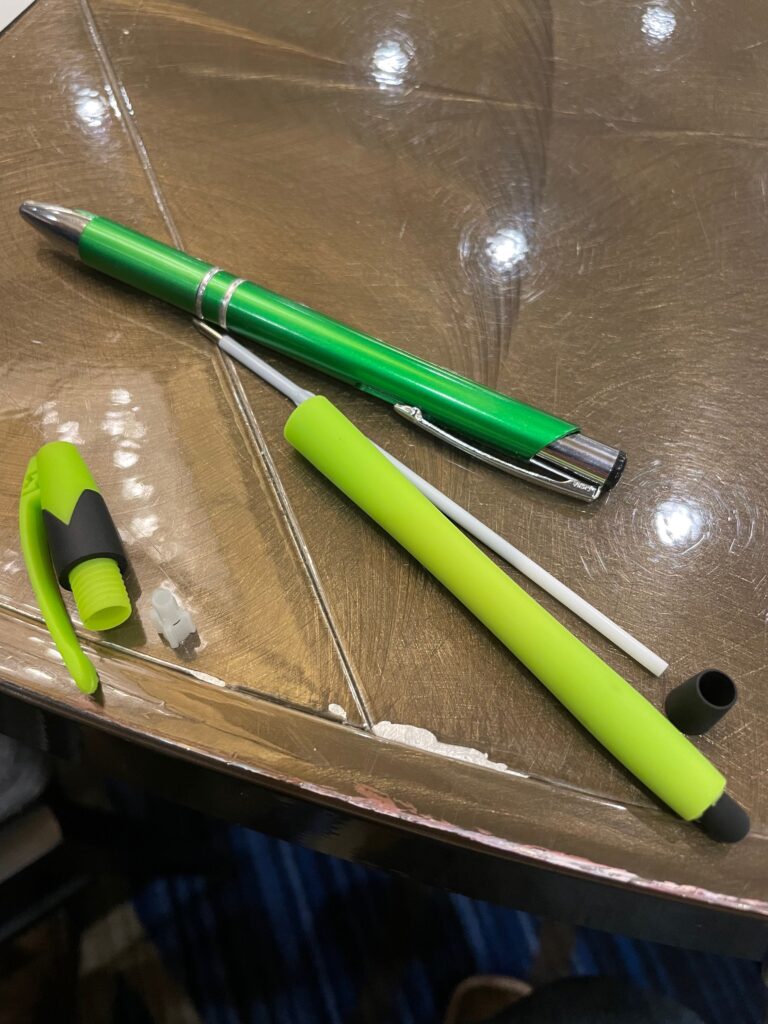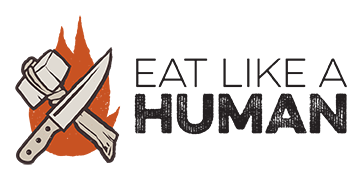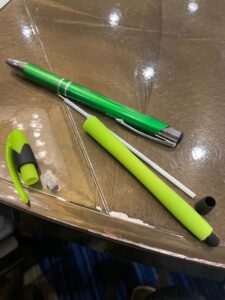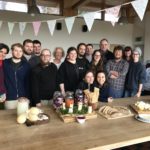When I was little, it used to drive my father crazy that literally every pen in the house was broken. Our house was full of click pens and I loved to take them apart. My curious mind and fidgety hands couldn’t resist the urge to completely disarticulate the pens and then attempt to reassemble them.
In retrospect it was a fantastic hands-on, project learning opportunity for me. The problem was, none of them ever worked quite the same way after I was through no matter how careful I was.
But, it never stopped me.
I was convinced I knew how they worked and that I could reconstruct each and every one of them as good as new no matter how many times I failed. Funny, I haven’t thought about the pen-destroying aspect of my childhood for decades until this morning when I opened up Instagram.
A feed of pushers
The barrage of supplement pushing health influencers that came across my Instagram feed this morning was mind blowing. What bothered me most was not the “pill pushing for optimal health” message but rather the overconfident air the influencers portrayed. The underlying message in their posts was that modern nutrition science can recreate in a lab what it takes to fully nourish a human by artificially piecing the individual components of a complete diet together. Certainly, this is far from the truth.
This commentary is not on the value or danger of supplements. In fact, the more I learn about the deficiencies in our soil and the food that is born from it, the more I am starting to believe at least some nutritional supplementation is becoming more of a necessity of modern life. That, however, will be the topic of other future blog posts.
Instead, here I am focused on the erroneous belief any one of us knows everything there is to know about food, diet, and human health.
The impact of Nutritionism
A huge, unfortunate transformation has been taking place over the past 300 years. This transformation is the metamorphosis from looking at food and seeing food (like our ancestors did) to looking at food and seeing a conglomeration of its invisible components or, as Michael Pollan calls it, nutritionism. The roots of nutritionism coincide with the “chemical revolution” in France when we began to identify the constituents in food such as the macronutrients protein (identified in 18th century by French chemist Antoine Fourcroy) and fat (scientifically identified at end of the 18th century by Antoine Lavoisier) and carbohydrates (term first proposed by German chemist Carl Schmidt in 1844) and began to ask questions about metabolism.
These new discoveries reshaped the way we conceptualized food and our relationship with it. In, A short history of American food (whatever that is), CNN writer, Channon Hodge suggests that by the late 1800’s, people began to prioritize invisible components of food in their decisions about how they should eat. And with this new perspective the days of relying on our senses, fine tuned through millions of years of evolutionary forces, were long gone and a new way of determining what to eat was born.
The problem?
We are not humble enough to realize how much we don’t know and that is very dangerous. With each new scientific discovery we believed we knew all there was to know about food, diet and health. That is, until we discovered something new. And, then believed we knew it all. Ann Vileisis’ covers this repetitive phenomenon well in her book, Kitchen Literacy: How We Lost Knowledge of Where Food Comes from and Why We Need to Get It Back.
That brings me back to my pen analogy.
I looked it up. According to pens.com, the anatomy of a standard click pen includes a tip, a barrel (or two halves of a barrel with a collar), a spring, a ball point tip, an ink chamber and a thrust device. Sometimes, fancier types include several ink chambers of different colors each with their associated thrust devices but that was it! Six to twelves part max.
It was so simple, in fact, that for the life of me I cannot understand why every time I took it apart, I never put it back exactly the same way.
Did I lose a small piece? Did I strip something? Did I need to reassemble in a different order?
Something was always missing in my reconstruction but it never stopped me from believing I knew everything I needed to know about click pen deconstruction and reconstruction and confidently moved on to ruin a new innocent pen from my parents’ desk.

Putting it back together
There are a ton of similarities between me destroying the pens of my childhood by reducing them down to their individual parts and believing I could reassemble them as good as they were when they were whole and, modern nutrition science atomizing complete human diets that worked so incredibly well for millions of years and believing they can reassemble all of the constituents and nuances of a complete human diets piecemeal. With the nutritionism transformation the modern industrial food system machine developed an unparalleled hubris.
But it doesn’t work that way.
We are not as smart as we think we are. Discoveries in nutritional science are incredible and I appreciate learning new things about my food and metabolism. However, I fully believe we have only scratched the surface of what there is to learn. And, those nuances make all the difference. Every day, every week, every year and every decade we discover something new and monumental about nutrition.
Overconfidence in our understanding of nutrition literally ruins lives by destroying health.
So, where does that leave us?
The number one priority is to reconnect with our food and regain an appreciation for our senses. The way food looks, smells, sounds, tastes and makes us feel were the determining factors for what to eat throughout the entirety of our past. That is why ancestral and traditional approaches to food form the foundation of my diet.
However, that doesn’t mean nutrition science is bad. Rather, there is a ton to learn about our food and I believe there is a place for science in the food system of the future. It just needs to be a part of a much larger, more informed, holistic approach.





 When it comes to eating meat, have we stepped back too far?
When it comes to eating meat, have we stepped back too far?
really liked this article as it speaks volumes about the current love of technological answers. In all fields, reduction to deconstruction then reconstruction differently – oh my goodness, what a world we live in, particularly in the west, tho other more educated people are doing this as well all over the world in the race to become rich, and famous.
good food is a feeling not a head space. a feeling of completeness in the body, and a respect for reciprocity with the plants and animals that offer themselves to us. Robin Wall-Kimmerer puts it beautifully in her book Braiding Sweetgrass.
Hi Bill,
As a professional Nutritionist, I too am alarmed by the regularly mis-guided promotion of nutritional supplements. I am gladly you are raising this awareness. Sadly, this practice is often fueled by profit motives that leave people – whose only desire is to feel better – bewildered by confusing and conflicting information (you may be interested to see this recent article in the Washington Post about the FTC cracking down on “social influencer” dietitians who failed to disclose their financial relationships with the food industry and spread a LOT of misinformation). Supplements can be very helpful, but only when clinically indicated based on a professional assessment of the individual’s unique circumstances.
You and I share the understanding that humans have evolved over millions of years in the context of our environments. Our bodies recognize and are more able to absorb nutrients that come from whole foods. Similarly, whole plants, when used medicinally, are preferred to individual constituents, such as essential oils or “nutriceuticals.” Whole foods provide the building blocks for everything our bodies need. And, as you note, the process is complex. Our ability to absorb and transform nutrients into functional forms can be impeded by our cooking and eating habits, physical impairments in the digestive system, pharmaceutical use and even emotional states. In my role as a clinician, I always look for ways to help the body return to its normal function, addressing each of these areas of wellbeing, and relying on ingredients that are evolutionarily familiar to our bodies. Awakening our sensory capacities and observing how our bodies respond to the inputs from our environment is foundational.
Thank you for your important contributions to this dialogue. Let me know if you would like to continue the conversation. I look forward to seeing you again at MSAK.
Warm Regards,
Deborah Mizeur, MS, CNS, MHA, RH (AHG)
Certified Ketogenic Nutrition Specialist